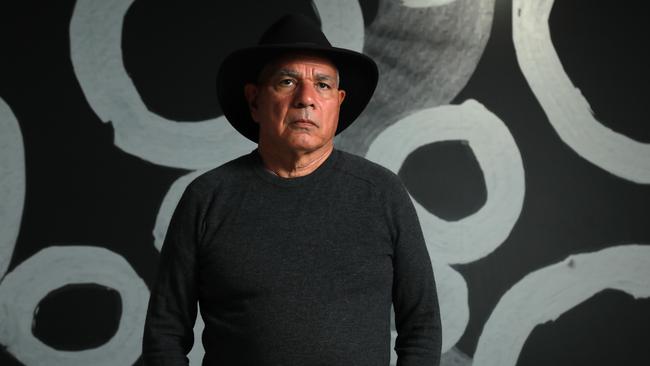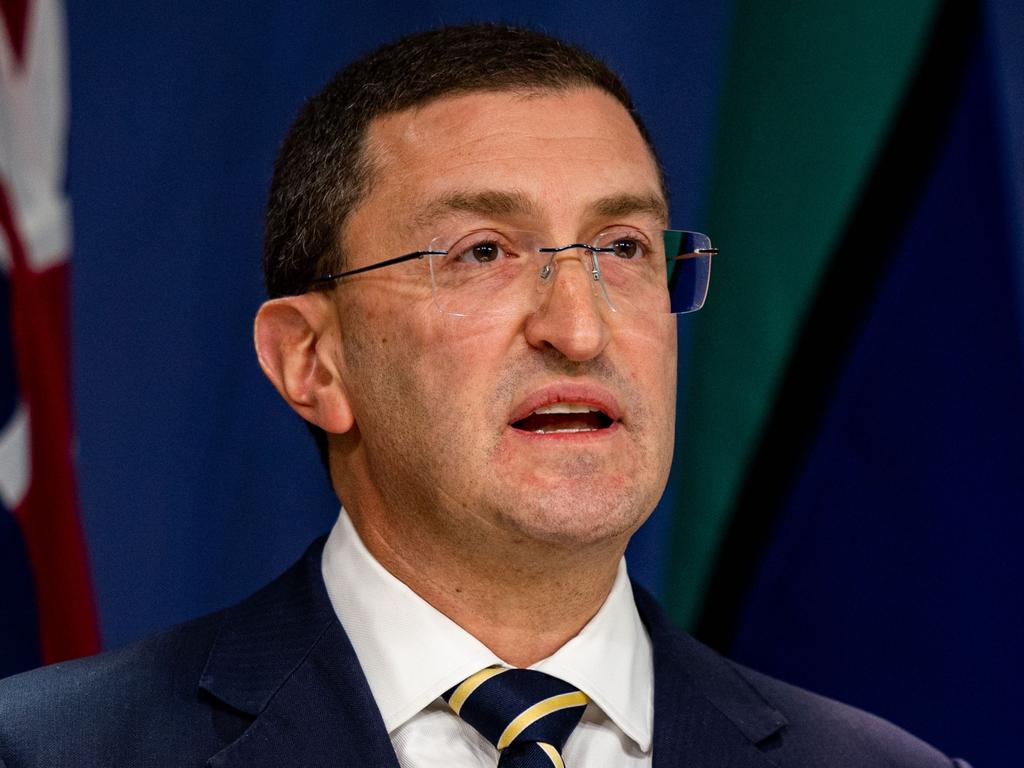Indigenous voice to parliament inquiry told some of Australia’s most elite athletes are ‘frightened to say no’ in referendum
Aboriginal leader Nyunggai Warren Mundine says pressure to support the Indigenous voice to parliament is so great that elite athletes confide to him they are afraid to reveal they do not back it.

Aboriginal leader Nyunggai Warren Mundine says pressure to support the Indigenous voice to parliament is so great that elite athletes confide to him they are afraid to reveal they do not back it and investors in his ventures have been threatened.
“I get phone calls every day of the week from players in the AFL, rugby league, soccer … and they are saying they are scared, they don’t support the voice but they are scared to come out about it,” Mr Mundine told a parliamentary inquiry.
“It has silenced people. Anyone who says that it hasn’t I think they’re off in yaya land.
“People approach me all the time and they are scared and I have personal experience of it from my investors, and the threats.”
One of Mr Mundine’s concerns about the voice is that it cannot practically represent the many separate Indigenous nations across Australia.
The former federal Liberal Party candidate was one of the heavy hitters from the modern era of Indigenous affairs and politics to give sharply contrasting accounts of the voice on the final day of the joint select committee’s hearings on Monday.
Cape York Institute founder Noel Pearson, who ventilated the proposal for an Indigenous advisory body in his landmark 2014 essay A Rightful Place, told the inquiry on Monday that the proposed voice amendment was a beautiful set of words to adorn the Constitution.
A Yes vote would enhance democracy and change Australia for the better, he said. A No vote would lead to “ad infinitum protest” and the death of reconciliation.
Mr Pearson said he saw the voice as a messenger to Canberra, in which members were ambassadors or spokespeople for the communities they represented. Much depended on parliament getting the design of the voice right in legislation after a successful referendum, he said.
“I see the microphone at Lockhart River. The speaker might be in Canberra but the voices have got to come from the ground and the region,” he said.
Mr Pearson recounted an almost 16-year process, initiated by John Howard’s commitment to constitutional recognition of the “special status” of Indigenous Australians in 2007.
Along the way, Mr Pearson said, all the compromises had been made by Indigenous proponents. The voice itself was a compromise struck with constitutional conservatives who rejected an earlier proposal for a non-discrimination clause in the Constitution.
He said constitutional conservatives saw a non-discrimination clause as a one-line bill of rights, but supported an enshrined Indigenous advisory body.
The request for a voice was the result of requisite leadership by Indigenous people and he believed Australians were ready to support it.
However, former prime minister Tony Abbott earlier on Monday told the inquiry the process that led to the voice was abbreviated and many Australians had been excluded.
Mr Abbott, a last-minute addition to the witness list, told the inquiry that the voice needed a much greater sense of public ownership.
He said that if the referendum to enshrine the advisory body in the constitution failed “that would leave Australians embittered and divided”.
“But I suspect that if this succeeds it will also leave us embittered and divided because of the process that has got us to this point,” he said.
When Labor MP Sharon Claydon asked Mr Abbott about cuts to Indigenous funding during his prime ministership, he said: “Money is important but the important thing is not how much money is being spent; the important thing is what outcomes do we get on the ground and there has been no lack of spending over the last three or four decades.
“The spending has been an avalanche of dollars but it hasn’t been reflected in better outcomes for Indigenous people.
“The key thing is the attitude, and frankly at the heart of the dysfunction right now is a sense of separatism and this Indigenous voice, constitutionally entrenched Indigenous voice, is going to make this sense of separatism even worse.”








To join the conversation, please log in. Don't have an account? Register
Join the conversation, you are commenting as Logout